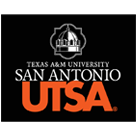Document Types
Individual Presentation
Location
Texas A&M University-San Antonio | HALL 102
Start Date
2-22-2024 2:00 PM
End Date
2-22-2024 3:20 PM
Track
Language Attitudes/Ideologies
Abstract
In this presentation, I show how we (director and instructors) have fostered Latinx/e students’ familial capital in the Spanish Heritage Language Program at the University of XXX. Familial capital recognizes the nurtured relationship students have with their immediate and extended family members and communities. This capital also includes the lessons students learned on caring, coping, emotional, moral, and educational consciousness from their family members. Additionally, this capital pulls from the research of Vélez-Ibáñez and Greenberg (1992) on Funds of Knowledge that points out that Mexican-Americans learn valuable lessons from their family and community that have been passed down across generations. In the SHL classroom context, familial capital focuses on creating relationships of care among students and educators. This includes building a sense of community in and outside the classroom and developing a mentorship relationship between the students and educator. This is possible by explicitly implementing Latinx/e community cultural wealth in the SHL curricula.
Recommended Citation
Amezcua, Angelica, "Fostering Latinx/e students’ familial capital in the Spanish Heritage Language Program at the University of XXXX" (2024). 11th National Symposium on Spanish as a Heritage Language. 8.
https://digitalcommons.tamusa.edu/heritage_spanish/SCHEDULE/Thursday/8
Fostering Latinx/e students’ familial capital in the Spanish Heritage Language Program at the University of XXXX
Texas A&M University-San Antonio | HALL 102
In this presentation, I show how we (director and instructors) have fostered Latinx/e students’ familial capital in the Spanish Heritage Language Program at the University of XXX. Familial capital recognizes the nurtured relationship students have with their immediate and extended family members and communities. This capital also includes the lessons students learned on caring, coping, emotional, moral, and educational consciousness from their family members. Additionally, this capital pulls from the research of Vélez-Ibáñez and Greenberg (1992) on Funds of Knowledge that points out that Mexican-Americans learn valuable lessons from their family and community that have been passed down across generations. In the SHL classroom context, familial capital focuses on creating relationships of care among students and educators. This includes building a sense of community in and outside the classroom and developing a mentorship relationship between the students and educator. This is possible by explicitly implementing Latinx/e community cultural wealth in the SHL curricula.

